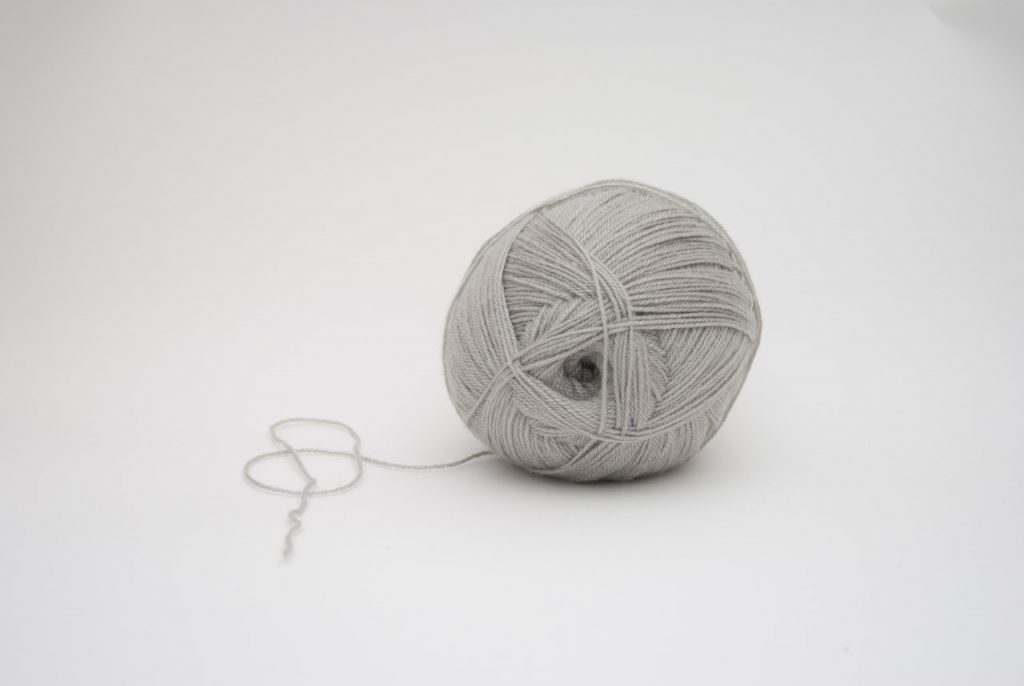Good Afternoon, and welcome to the first digital roundup for July.
In this week’s roundup, I cover the launch of Threads, Meta’s ‘Twitter killer’. I also cover the official replacement of Universal Analytics, and why ChatGPT’s creator is being sued.
Let’s get right into it!
Threads, a new Twitter alternative launches
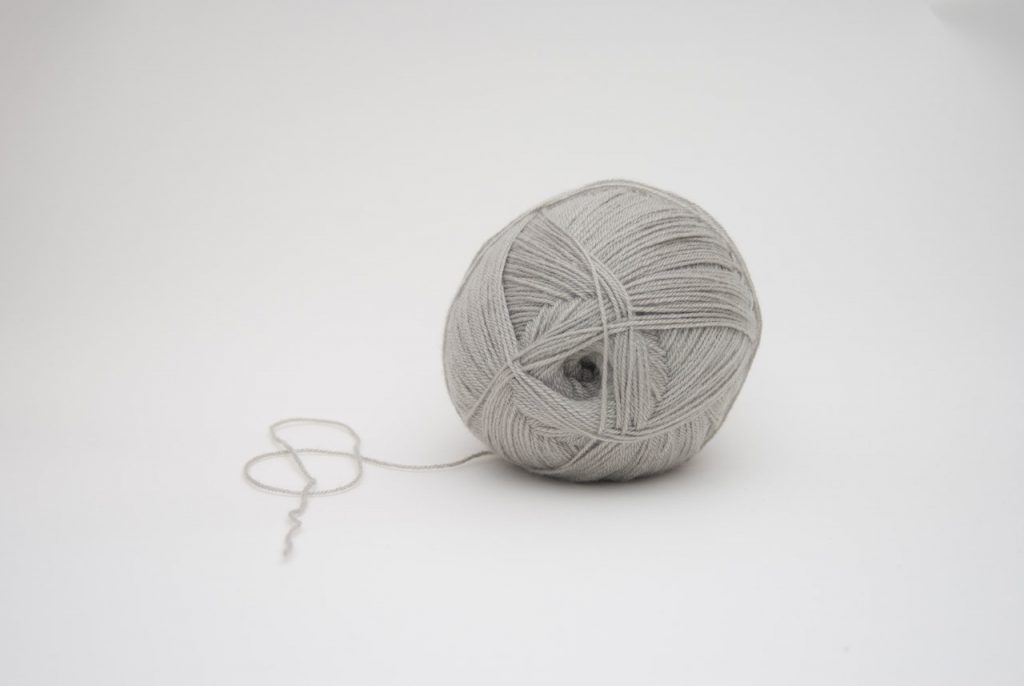
Yesterday, Meta launched its new social media app ‘Threads’. Meta launched the app a day early and saw over 55 million users sign up.
But what is Threads?
Threads is a new alternative to Twitter which you link to your Instagram account. The home feed is similar to Twitter, except you see ‘threads’ from everyone on the platform, not just the people you follow. Another key difference from Twitter is that Threads lacks a trending section.
How to get Threads
Before you download Threads, make sure you’re logged into your Instagram account on the same device you’re downloading it to.
Next, download Threads from the App Store or Play Store.
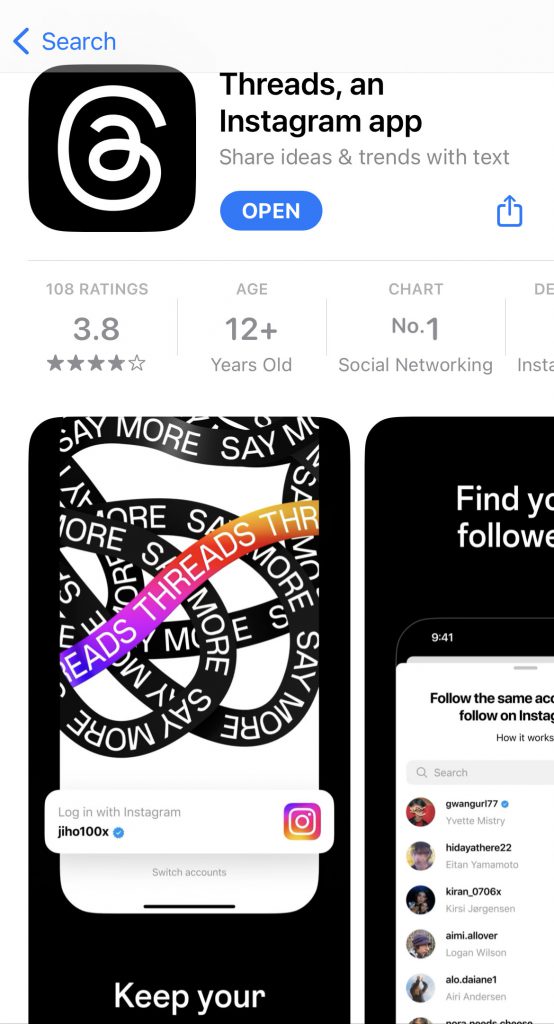
Once it’s downloaded, you’ll be prompted to sign into your Instagram account.
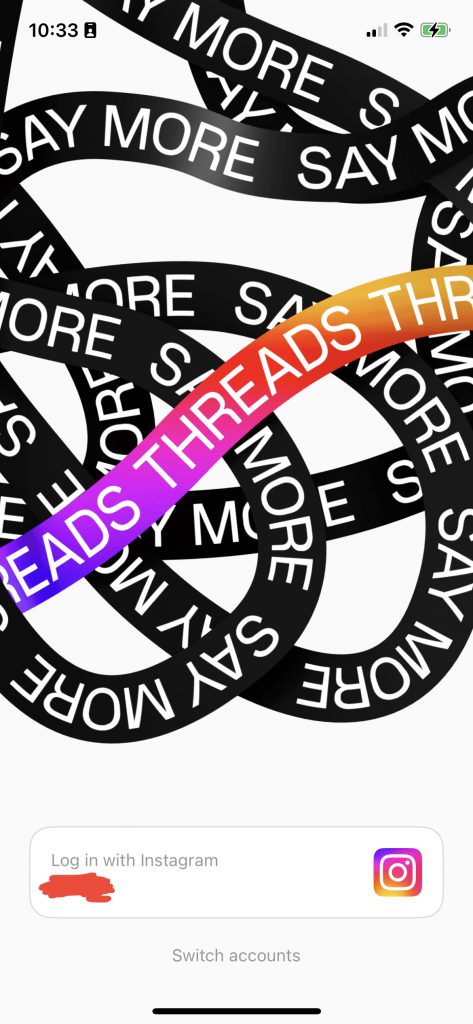
You’ll just need to click the login button. Then it will ask you if you want to change your name, username, or profile picture. It will also ask you if you want to follow everyone you follow on your Instagram.
After that, voila! You’re all set and will be directed to your home feed.
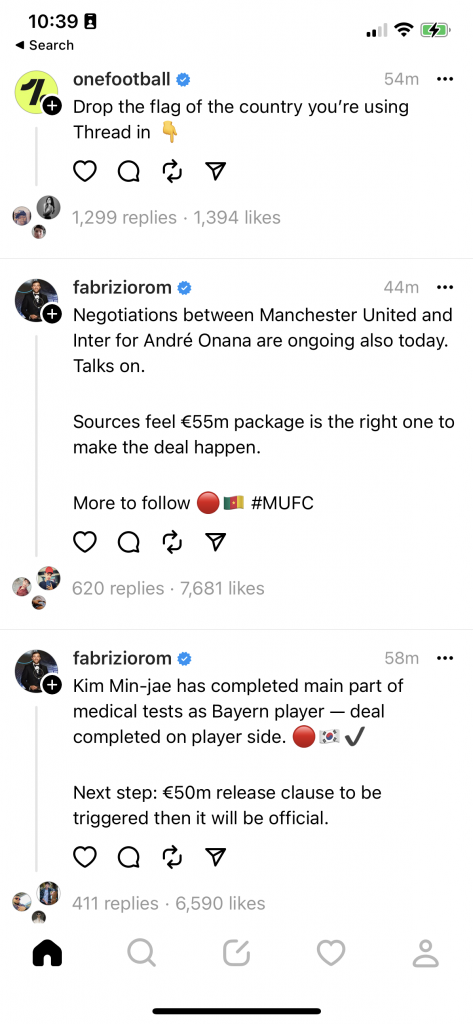
You can create new threads, search for accounts, see your notifications, or view your account using the footer menu.
Your Instagram profile also gets a cool badge showing your user number:
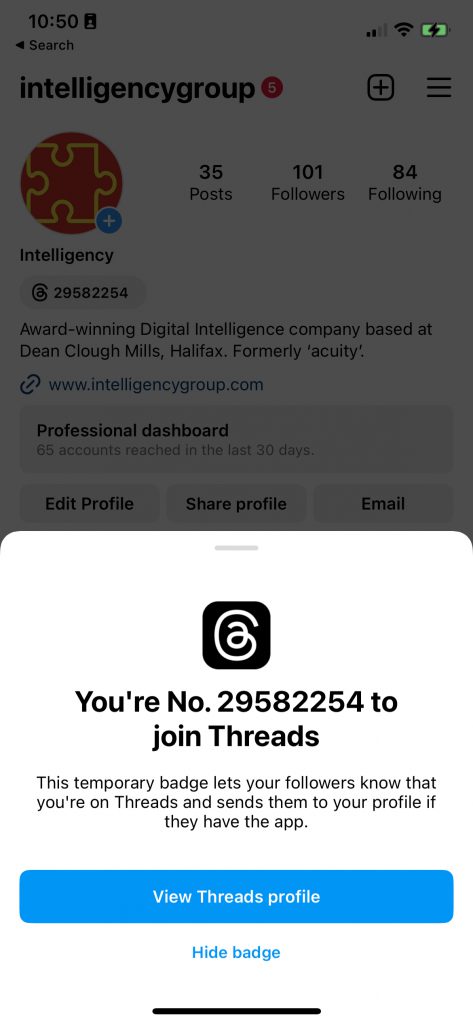
Twitter’s reaction
Twitter did not respond kindly to the launch of Threads. The company has threatened to sue Meta for “systematic, willful, and unlawful misappropriation” of trade secrets and IP. You can see the Tweet below:
Stick with us to see what happens with regard to Thread and Twitter’s lawsuit threat.
Universal Analytics replaced by GA4
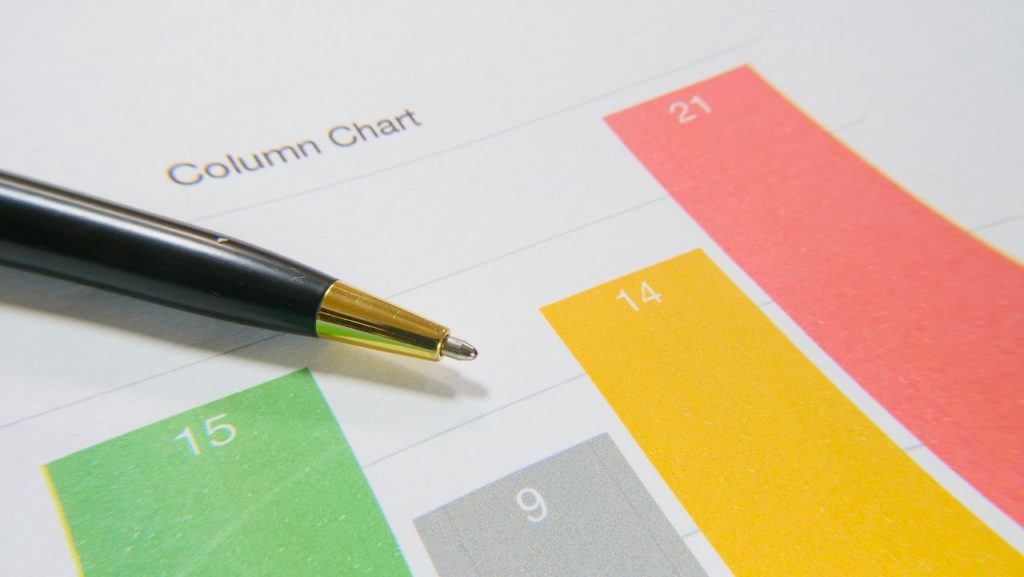
This week also marked the official replacement of Universal Analytics (UA) with Google Analytics 4 (GA4).
If you logged into UA this week, no doubt you saw this message:
“This property is scheduled to stop processing data very soon. Once this goes into effect, you’ll need a Google Analytics 4 property to measure website performance.”
This message was just to remind marketers that they need to move to GA4 in order to maintain their website analytics. This is a historical moment for marketers, as UA was used worldwide for 11 years before Google’s forced transition.
Unless you want an analytics alternative that’s not Google-based, advertisers and markets have no choice but to use GA4 for campaign and website performance tracking.
How it works
Google rolled the shutdown out in stages as to not cut everyone off from UA all at once. By the time this roundup is published, UA will have stopped recording any new data for everyone.
However, for historic purposes, you can still access data from up to when data stopped recording.
You can see what Google said about it below:
Timeline
I first wrote about the sunsetting of UA back in February 2023, this is when Google warned everyone of the forced switch to GA4.
Then, in March 2023, Google automatically created GA4 properties for businesses if they didn’t have one already unless they chose to opt-out. Now, everyone has moved to GA4.
But Google has warned that by July 2024, no one will have access to the UA interface or API. So make sure all your historic data is exported by then!
ChatGPT’s creator facing multiple lawsuits

OpenAI, the company that created ChatGPT, is currently facing multiple lawsuits. One lawsuit claims that GPT was trained with books that OpenAI didn’t have the copyright for.
The lawsuit was filed in the federal court of San Francisco, alleging that OpenAI copied various texts from books that were unlawfully obtained. Consent from the copyright holders wasn’t obtained and they also were not credited.
The other lawsuit claims that the machine learning models of GPT and Dall-E breach various privacy laws by illegally collecting data.
Depending on the outcome, AI precedents in terms of copyright and privacy could be changed for companies going forward. But let’s learn some more about each lawsuit.
Lawsuit #1: Copyright infringement
This lawsuit was filed by two authors alleging that GPT copied and used their books without their permission. It has been named Tremblay v. OpenAI inc, and claims that GPT can do precise summaries of the authors’ sci-fi and horror books.
What this suggests is that the Chatbot has been trained on the books, when it’s supposed to only be able to access public internet information up to September 2021.
Tremblay v. OpenAI Inc points towards an OpenAI 2020 paper. 15% of the data used to train GPT came from “two-internet-based books corpora”
However, the authors believe that one dataset contained 290,000 books from shadow libraries. Shadow libraries are huge online databases filled with pirated books that anyone can just download. Supposedly, the copyright notices on books downloaded from these sites were removed by OpenAI.
Lawsuit #2: Privacy violations
The second lawsuit was a bit more lengthy. The plaintiffs alleged that DALL-E and ChatGPT illegally obtain user information which is then used to train the AIs.
PM vs OpenAI LP alleges that data is obtained using the AI systems without a user’s consent, which is breaching numerous data laws. Additionally, its systems are integrated into Snapchat, Spotify, Stripe, Slack, and Teams.
OpenAI has been accused of gathering images, locations, music tastes, financial details, and DM’s from users on the various platforms it’s integrated into. If this is true, then it’s not only breaching the privacy laws in place for the platforms but also serious regulations such as GDPR.
OpenAI has not responded with a comment about either lawsuit.
What are the potential consequences?
If OpenAI is found to be guilty of both charges, then the ramifications could include:
- A damaged reputation to stakeholders such as users, partners, and investors.
- Stricter rules and compliance requirements
- Changes to how data is gathered and used
- No future use of OpenAI services
We’ll have to see what happens with the lawsuits to see what the fallout will be!
But as always, thanks for reading this week’s digital roundup! Stay safe, and see you next week!
